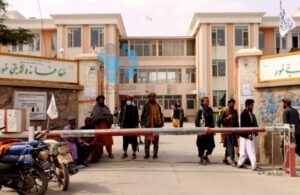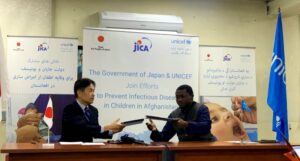KABUL (SW) – As educational opportunities for girls remain restricted in Afghanistan, mothers express deep concerns about their daughters’ uncertain future.
In a recent series of Salam Watandar’s interviews with 15 mothers, the prevailing uncertainty regarding their daughters’ education has led some to contemplate drastic measures.
Two of these mothers have married off their daughters, three considered migrating to another country to provide educational opportunities for their daughters, and one mother also said that if educational restrictions for girls persist, she would be forced to marry off her daughters.
This is while the reopening of schools and universities remain ambiguous.
For Nabila, a Kabul resident and mother of seven daughters, the closure of schools and universities has forced her to marry off one of her daughters who was pursuing a degree in medical field. “The situation worries everyone. One of my daughters was in the final semester of medical department, one was in the fourth year of engineering, and another was studying computer science in Kabul University, and one was in the sixth grade when her school closed. They suffer a lot, and it is heartbreaking.”
Similarly, Sima from Baghlan, engaged both of her daughters after schools closed, as marriage seemed the only viable option for their future. “I worry a lot. A while ago, I engaged my two daughters. My heart desires for my daughters to go to school, my daughters are worried. I want their future to be good. My daughters will be Housewives,” she said.
In addition to the grief that befalls girls, the mothers are also worried about their daughters’ future due to the educational constraints against them.
Husna, a resident of Kabul with a 15-year-old daughter, expresses concern about her daughter’s educational future: “She completed the seventh grade last year, and I am very worried that she could not continue her education, and I am afraid the situation will remain the same. Not only me, but also all mothers are worried. If this situation continues, it will worsen.”
Shokufa, another resident of Kabul with a daughter, also says: “As a mother, I worry about my daughter’s future. When she cannot study, the country cannot progress. My daughter is nine years old, and I hope schools reopen as soon as possible.”
In the face of such challenges, some families are considering migration to provide better educational opportunities for their daughters.
Zahra, a resident of Kabul, says, “I have a 12-year-old daughter who is in the sixth grade, and maybe next year, my daughter will graduate and won’t be able to go to school anymore. I used to have a job, but not anymore, and from an educational and economic point of view, I am worried; if it does not work out, I have to relocate my daughter to Iran or other countries for education.”
Asma, a resident of Kunduz, says about the condition of her daughters, “One was in the 11th grade and was about to graduate from school; now I am worried. When a woman gets sick, she visits a female doctor, do they take their own daughters and wives to a male doctor? Of course not. I am upset with my homeland, and we have to leave the country for the sake of our children’s education.”
Yet, amidst these concerns, some mothers are determined to find alternative solutions, and have tried to fill the gap of missed in-person education by encouraging them to learn online.
Nabila, a resident of Kabul, says, “I have a daughter who missed school. She was in the eighth grade; Corona came, and the ninth grade was also missed. She suffered a lot from illness. Now she studies online, and she is not very happy about it.”
Another resident of Kabul, Tahmina, also added, “My daughter was very discouraged, but I did not want her to lose hope. Then I engaged her in courses and vocational activities, and now she has learned painting very well. We must keep our daughters out of despair and never force them into marriage.”
Women’s rights activists emphasize the urgency of lifting educational constraints for girls to alleviate mothers’ concerns.
Lina, a women’s rights activist, tells Salam Watandar, “Families are not well-informed and give in to child marriage to end their responsibility, and mothers who did not have financial independence and whose hope was their daughters, are worried. The solution is to re-open the gates of schools and universities.”
Some educational experts consider education crucial for societal improvement and urge the Islamic Emirate to lift educational constraints against girls.
Jamaluddin Sulaimani, an educational expert, says, “The importance of education in society is palpable; today’s progress stems from knowledge, and among the Islamic Emirate, there are people who understand, and we must solve the issue of education through dialogue, and when we do not allow girls to receive education, it is an injustice. Most girls have given in to marriage. Mothers must know that this situation is not sustainable and encourage and give hope to their daughters.”
As mothers in Afghanistan grapple with the uncertainty surrounding their daughters’ education, there is a growing call for action to ensure that all girls have access to quality education, what paves the way for a brighter future for the next generation, however, no serious measures have been taken.
After the collapse of the republican regime in August 2021, female students above the sixth grade were banned from going to schools, and from the December of 2022, female university students were also barred from studying.
We attempted to include the viewpoint of the Islamic Emirate in this report, but the de-facto government spokespersons denied to cooperation.






